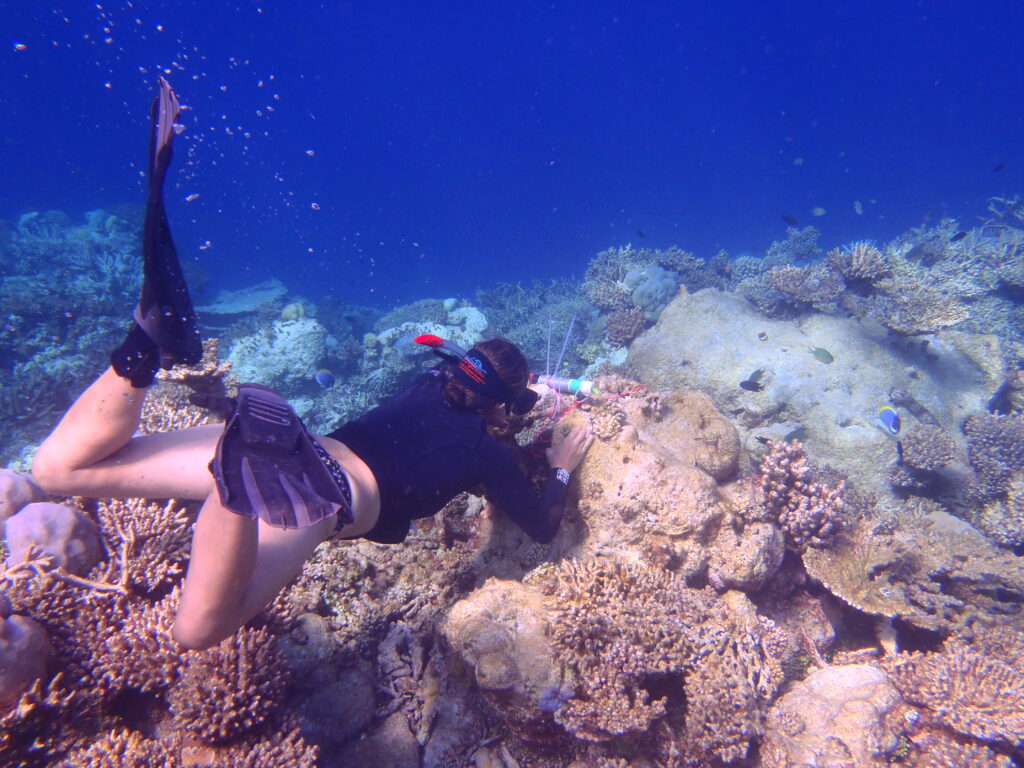Project Details
Coral Reef Morphodynamics
A/Prof Ana Vila-Concejo, Dr Thomas Fellowes, Dr Tristan Salles, Prof Maria Byrne
THE PROBLEM
Coral reefs around the world are irreversibly transforming due to unprecedented rapid environmental change. Recent mass bleaching events have shown the impact of climate change driven marine heatwaves for coral reef health and the demise of reef structure. Because returning coral reefs to their past healthy state is no longer an option, there is a pressing need to understand, quantify and model the impact of new environmental conditions on coral reefs. Coral reefs (and reef islands) are not inert features that will simply get destroyed or flooded with climate change. While there is research that predicts a future of flooding and inhabitability for reef islands, other studies show that reef islands can even grow under climate change and advocate for more detailed eco-morphodynamic modelling. This is of important for Australia as we are the custodians of some of the largest and most important coral reef regions on Earth – the Great Barrier Reef (GBR) and the Coral Sea. Many reef islands in these regions are threatened by climate change and are internationally important as the legal ‘baseline’ from which Australia’s maritime zones are drawn.
Recent years have shown the vulnerability of the corals (and coral islands) is widespread with episodes of bleaching, ocean acidification, sediment plumes, cyclones, and, threatening species such as crown of thorns starfish. With climate change, reefs face accelerated changes that will affect ecosystem services such as coastal protection. The health of coral reefs and sediment producing organisms (e.g., corals, foraminifera) will be less impacted by incremental global warming and acidification than by increasingly frequent marine heatwaves and storms. There are key knowledge gaps in quantifying carbonate sediment budgets and productivity, wave dissipation and sediment transport, and reef and island resilience. This needs to be addressed using multidisciplinary approach using field data, remote sensing and numerical modelling.
THE RESEARCH
We aim to understand coral reef morphodynamics, wave dissipation, sediment transport… there are a number of projects, including numerical modelling and field studies that are currently undergoing. These include: – Decadal studies using GIS – Surveying using state-of-the-art techniques, RTK and drones – Hydrodynamic measurements (waves and currents) – Sediment analyses and sediment transport studies – Numerical models of wave dissipation on coral reefs

Contact
A/Prof Ana Vila-Concejo, Dr Thomas Fellowes, Dr Tristan Salles, Prof Maria Byrne
Email: ana.vilaconcejo@sydney.edu.au
Address: F09 – Madsen Building
School of Geosciences, The University of Sydney